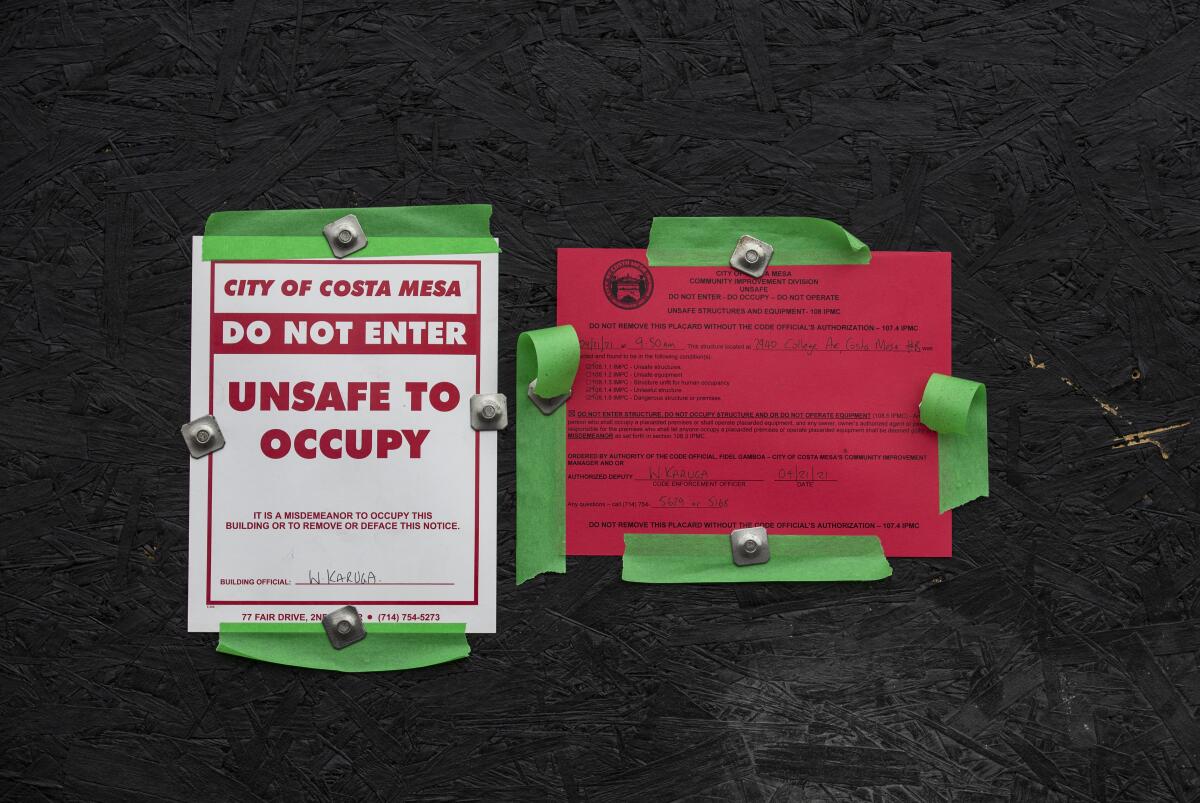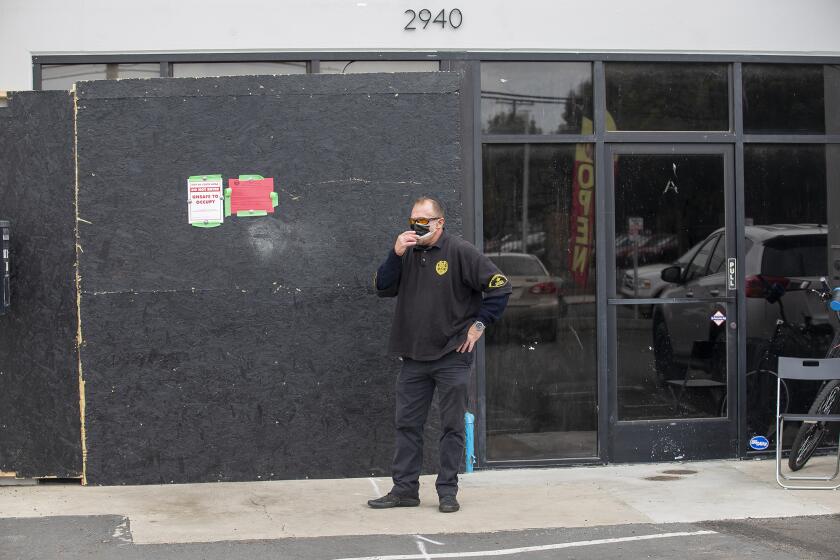Retail cannabis gets the green light in Costa Mesa as council passes new law

- Share via
Six months after Costa Mesa voters resoundingly approved Measure Q — a move to legalize retail cannabis sales and delivery — city officials on Tuesday adopted legislation intended to regulate such businesses while weeding out bad actors.
“Out of humility I’ve said it’s not perfect, and that’s probably true,” Mayor John Stephens said of an ordinance that will allow dispensaries in commercial zones but institute a 1,000-foot barrier from sensitive uses, such as K-12 schools, playgrounds, child daycare centers and homeless shelters.
“But we’re never going to get perfect, and we shouldn’t have the perfect be the enemy of the good,” Stephens continued. “And these ordinances drafted are very good, very well thought out and very considered by staff and by the council.”
The law will also prohibit pot shops from opening within 600 feet of youth centers, where children socialize; buffer distances will be measured, in a straight line, even through what some claim is the impenetrable barrier that is the 405 Freeway.
Costa Mesa will impose a 7% tax on all cannabis goods — a move that’s estimated could bring in $3 million to the city annually but which, on top of sales tax and a state excise tax, will constitute a 30% levy customers will have to pay.

While no cap will be placed on the number of businesses in town, any property where an illegal business has operated in the past cannot be granted a retail permit until at least one year has passed.
A recommendation by the city’s planning commission to prohibit dispensaries from doing business within 500 feet of one another was overruled by a set of recommendations made by an ad hoc subcommittee just prior to an April 20 first reading and approved in a 5-2 vote.
The same two council members who opposed the ordinance during that meeting — council members Arlis Reynolds and Don Harper, from districts 5 and 1, respectively — held firm on Tuesday, casting dissenting votes.
“There’s a 30% markup in tax. In a commodity market, margins get squeezed,” Harper said. “You’re going to have a constant battle of ‘good’ retailers trying to survive and [those] definitely selling illegally.”
In a last-ditch effort to rally support for a substitute motion, Reynolds proposed reinstating the 405 Freeway’s status as an impenetrable barrier, calling it earlier removal somewhat arbitrary, and taking more time to hear and address public concerns.
“Most of the people I’ve talked to since our first meeting were surprised this was happening,” she said of the legislation. “It’s really important we take the time to make sure the community knows we’re having this conversation and have the time to give public input.”
Council members on 4/20 favored a new rule regulating retail cannabis sales and delivery, saying a legal market would drive out illicit operations. But some are doubtful.
Harper seconded the substitute motion, and Mayor Pro Tem Andrea Marr — who made a push for including private playgrounds as a sensitive use — agreed, but the trio failed to gain any more votes.
A second vote on the original motion, made by Councilman Loren Gameros, corralled the other four council members but was not enough to meet the two-thirds threshold required for passage. After Gameros agreed to Marr’s private playground addition, and with the mayor pro tem on board, the initial motion passed 5-2.
“We’re not loosening controls,” Marr said, responding to public sentiment for more restrictions on the number and placement of dispensaries. “We very much are following the letter of what’s in Measure Q. We’re very much in keeping with exactly what the voters voted for.”
All the latest on Orange County from Orange County.
Get our free TimesOC newsletter.
You may occasionally receive promotional content from the Daily Pilot.








